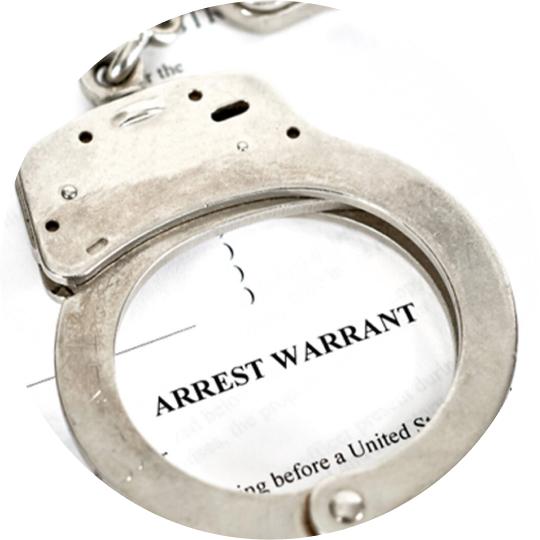Having an outstanding warrant can turn even the most mundane activities into a major ordeal. One of the most pressing concerns is whether you can fly on airplanes with an unresolved arrest warrant. In theory, yes, but the answer largely depends on specific circumstances. Airlines may deny boarding under certain conditions, so it’s really a matter of chance. If the police officers determine there is a warrant for your arrest, you will be arrested and taken into custody. Needless to say, this is far from the dream vacation start you had in mind.
Therefore, it’s extremely important to seek advice from an experienced lawyer in advance, who can provide comprehensive consultations on extradition and travel with active warrants. We can help assess how an outstanding warrant might affect your travels and develop a strategy to minimize potential issues.
What is an arrest warrant?
An international warrant is a legal document issued by law enforcement authorities in one country to detain an individual in another country. The primary purpose of such a warrant is to initiate the extradition process of a suspect or accused individual for committing a crime.
Arrest warrants can be classified by jurisdiction and level of action:
- Local arrest warrant: Issued by local law enforcement agencies and is only valid within a specific territory – a city, county, or region.
- Federal arrest warrant: Issued by federal authorities and valid across the entire country. Typically issued for major crimes that fall under federal jurisdiction, such as large-scale fraud, drug trafficking, terrorism, and other offenses that go beyond local laws.
- An international arrest warrant is used to detain individuals abroad for the purpose of their extradition. It’s intended for transnational crimes or when the suspect has left the country where they are suspected of committing a crime.
The most well-known form of international arrest warrant is Interpol’s Red Notice. Although a Red Notice is not an arrest warrant in the legal sense, it serves as a request to locate and provisionally detain a person sought for extradition. Interpol issues Red Notices at the request of member countries, and each country decides independently how to respond to the notice within the framework of its national legislation.
For an individual under an international arrest warrant, there are significant legal consequences:
- Extradition: If a suspect enters a country that cooperates with the country that issued the warrant, they can be arrested and extradited for trial.
- Travel restrictions: All international flights carry the risk of detention for individuals with a warrant. An individual under such an order can be stopped at international airports or border checkpoints where Interpol’s database checks are conducted.
- Freezing of assets and financial restrictions: this is especially likely if the matter is related to economic crimes.
- Reputational consequences: Can impact professional opportunities and relationships with other organizations or countries.

Where can you fly with an exit permit?
Flying with an outstanding warrant, even for minor offenses, can lead to serious potential problems. An arrest warrant issued by one country can be grounds for detention in another if you cross its borders.
Traveling within the country doesn’t pose additional risks since the arrest warrant was issued at an international level, and its enforcement outside of the issuing country is limited. However, if the warrant is accompanied by a domestic (federal or local) arrest warrant, flying domestically could also be restricted. For example, if you’re wanted by national authorities, you could be detained at any airport or train station during document checks.
Traveling internationally with an active warrant is quite risky, as many countries cooperate with Interpol and have extradition agreements. When someone with an existing warrant crosses the border of a country that collaborates with the issuing state, they can be detained and handed over for further consideration regarding extradition.
Some countries don’t have extradition agreements, so you can feel relatively safe in them. These countries include the UAE, Israel, Bhutan, Saudi Arabia, Russia, China, Venezuela, and many others.
When entering a country with a high level of cooperation with Interpol, border control may request information from international databases and identify any outstanding warrants. This could lead to immediate detention to ensure passenger safety when traveling. However, even if your final destination is a country without extradition agreements, transiting through other countries could result in arrest and deportation.
So, for domestic flights, having a bench or felony warrant may not cause legal issues. However, the security procedures for traveling internationally involve warrant checks through national databases, so it’s better to consult with the airline and local law enforcement in advance regarding the possibility of entering your destination.

Who can’t fly with an order?
The ability to fly with an outstanding warrant depends on the specific destination country. For example, in the USA, absolutely no one can fly with a warrant because the TSA has access to Interpol’s databases.
Certain individuals subject to an international arrest warrant may face significant restrictions on flights and international travel. An international arrest warrant is typically issued in cases where a person is accused of serious offenses and is generally wanted for subsequent extradition. Let’s consider who is most susceptible to flight bans and restrictions on international travel:
- Individuals on international wanted lists: An arrest warrant has been issued as part of an Interpol search or by another international organization. Such individuals are under constant surveillance by law enforcement agencies, and information about them is available in systems checked by border services.
- Individuals accused of serious crimes: murder, terrorism, human trafficking, money laundering, major fraud, and other high-priority offenses for law enforcement agencies;
- Political activists and opposition figures: an international arrest warrant can be issued for political reasons, especially if the individual represents opposition interests against their own government. Although such a warrant can be contested in court, it will temporarily restrict the movement of the person it targets.
- Entrepreneurs and individuals involved in economic crimes: those accused of financial fraud or crimes related to money laundering. Such individuals may also be subject to international financial sanctions.
- Refugees previously charged with criminal offenses: individuals accused of crimes before being granted refugee status. In such instances, outstanding warrants can complicate the process of obtaining political asylum or restrict freedom of movement.
It’s important to understand your rights and the implications of being on an international wanted list, as well as to consult with a qualified legal professional to develop a defense strategy.
Air Travel and Security Screening

During airport security checks, special databases are used to identify individuals who are wanted or may pose a security threat. When going through airport security, passengers undergo several stages:
- Document verification: checking passports and other forms of identification to ensure that the details match the booking information.
- Baggage inspection and personal screening: Passengers and their luggage are scanned for prohibited items using X-ray machines, metal detectors, and explosive detection systems by airport police officers for passenger safety.
To screen passengers, airport security personnel use access to databases.
- Interpol’s database: information on individuals wanted under international arrest warrants;
- Passenger tracking systems: In the US, the Advance Passenger Information System (APIS) is operational, assisting in the identification of passengers on flights.
- Law enforcement databases: In the US, the TSA has access to the No Fly List database, which contains the names of individuals who are prohibited from flying, as well as other government systems for identifying potential threats.
In the United States, the Transportation Security Administration (TSA) manages a list of individuals who are prohibited from flying on domestic and international flights. This list includes people who pose a threat to passenger safety and individuals who are internationally wanted for serious crimes.
Border services around the world can access Interpol’s data to identify wanted individuals. Countries also frequently use their own databases to check passengers for any national or regional arrest warrants.
If it is discovered that a passenger is wanted or included on the No Fly List at the security checkpoint, the airport personnel will contact the relevant law enforcement authorities to confirm the individual’s identity and receive further instructions. Depending on the country and the nature of the charges, the passenger may be temporarily detained for further investigation.
Potential dangers if you have a warrant
Attempts to fly with a warrant can lead to serious legal consequences:
- Risk of Immediate Detention: Border guards and airport security services have access to national and international databases containing information on wanted individuals. If your name appears in a database due to an active warrant, you could be detained immediately after passing through passport control.
- The likelihood of arrest when crossing the border: depending on the charges, you may be denied entry into your destination country or detained at the origin airports until an extradition permit is obtained.
- Additional Checks: Even if you’re not immediately detained, having an outstanding warrant for your arrest can lead to extra scrutiny and restrictions. Security personnel may conduct a thorough personal search, check your travel history, and financial activities, or even deny you boarding on a flight until the circumstances are clarified.
- Reputational and financial consequences: Detainment can impact business relationships and cause difficulties in obtaining future visas or the right to enter certain countries. Besides, the extradition process and legal proceedings can require significant financial expenses, including payment for legal services, fines, and other costs.
If you have any outstanding arrest warrants, we recommend consulting with a qualified attorney before you take an international flight. A specialist will assess the potential risks, help minimize the consequences, and plan for safe movement.

Do you need legal advice regarding a departure order?
Consulting with a qualified attorney is the first step in protecting your freedom of movement and ensuring safety during flights. Having an active arrest warrant can lead to serious legal problems, including arrest and subsequent extradition.
Lawyers can request a review of the status of a warrant, assess its legality, and determine if there are grounds for contesting it. A warrant may be issued for political reasons or with violations of human rights. Professional legal assistance can help identify such cases and find lawful ways to protect your rights.
Experienced attorneys can help reduce the risk of being detained at the airport or a border checkpoint. They will develop an action plan and prepare you for interactions with border control services.
Our team of lawyers has years of experience in international law, human rights protection, and Interpol cases. We understand the nuances of different jurisdictions and can offer tailored solutions based on a deep understanding of legal mechanisms.
We treat each case individually and offer personalized strategies for every client. Our team understands the importance of reputation and confidentiality, so all consultations are conducted with your personal circumstances and needs in mind.
If you need expert legal advice on flying with an arrest warrant, reach out to our experienced attorneys. We’re here to help in any situation, no matter how complex.







